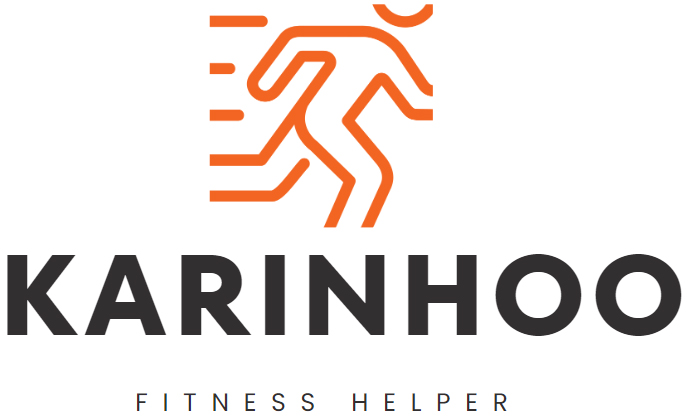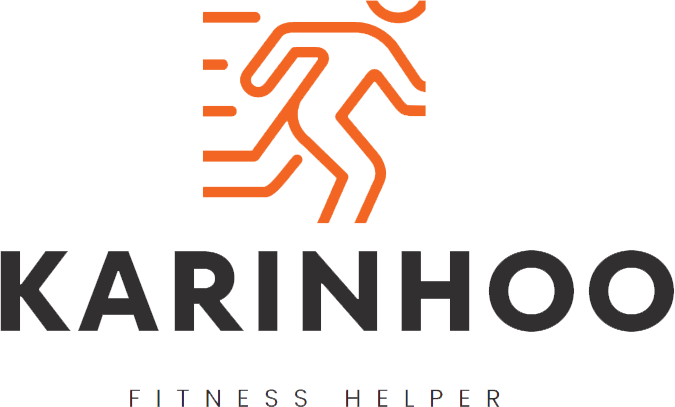The Impact of Marathon Training on Weight Loss
Participating in marathon training can have a significant impact on your weight loss journey. Running is a highly effective form of exercise that can help you shed unwanted pounds and transform your body. Not only does it burn calories, but it also boosts your metabolism, increases muscle strength, and enhances cardiovascular health.
When you engage in marathon training, you are pushing your body to new limits. This form of intense endurance exercise requires a considerable amount of energy, leading to a high calorie expenditure. By incorporating regular running sessions into your routine, you can create a calorie deficit, which is essential for weight loss.
Running also helps build lean muscle mass, as it engages multiple muscle groups in your body. As you increase your mileage and intensity, your muscles adapt and become stronger. This increase in muscle mass contributes to a higher basal metabolic rate, meaning you burn more calories even at rest. This can accelerate your weight loss and help you reach your goals more efficiently.
In addition to the physical benefits, marathon training is also highly beneficial for your mental well-being. Running releases endorphins, often referred to as the "feel-good" hormones, which can boost your mood and reduce stress levels. This release of endorphins can be particularly beneficial during a weight loss journey, as it can help alleviate feelings of frustration or anxiety that may arise.
Furthermore, marathon training provides an opportunity for personal growth and self-improvement. The discipline and commitment required for marathon training can translate into other areas of your life, including your weight loss journey. Developing a routine and sticking to it can help you stay focused and motivated, increasing your chances of success.
To make the most of your marathon training for weight loss, it is essential to design an effective training plan. This should include a balanced combination of long runs, shorter interval sessions, and strength training exercises. It is important to gradually increase your mileage and intensity to avoid injury and allow your body to adapt.
Nutrition also plays a crucial role in marathon training and weight loss. Fueling your body with the right nutrients before and after your runs is essential to support your training efforts and aid in recovery. a balanced diet that includes lean protein, whole grains, fruits, and vegetables can provide the necessary energy and nutrients for optimal performance and weight loss.
Marathon training can be a transformative experience in your weight loss journey. The physical and mental benefits of running, coupled with a well-designed training plan and proper nutrition, can help you achieve your weight loss goals. Remember to listen to your body, stay consistent, and stay motivated to maximize the impact of marathon training on your weight loss journey.
The Physical and Mental Benefits of Running for Weight Loss
Running is one of the most effective exercises for weight loss. Not only does it burn calories, but it also provides numerous physical and mental benefits that can transform your weight loss journey. Whether you’re a beginner or a seasoned runner, incorporating running into your fitness routine can help you shed those unwanted pounds and improve your overall well-being.
From a physical perspective, running is a high-intensity cardiovascular exercise that torches calories. As you pound the pavement, your body consumes energy, prompting it to tap into stored fat for fuel. This process leads to weight loss and a reduction in body fat percentage. Additionally, running increases your metabolism, allowing you to burn calories even after you’ve finished your workout. With consistency and dedication, marathon training can become a catalyst for significant weight loss.
Aside from its physical effects, running also provides a slew of mental benefits that contribute to your weight loss journey. Regular exercise, including running, releases endorphins in your brain, which are known as the "feel-good" hormones. These endorphins help combat stress, anxiety, and depression, which are often linked to weight gain or difficulty in losing weight. By incorporating running into your routine, you not only improve your physical fitness but also enhance your mental well-being, making it easier to stay motivated and stick to your weight loss goals.
Moreover, running can also boost your self-confidence and body image. As you progress in your marathon training and see improvements in your speed, distance, or endurance, you’ll gain a sense of achievement and belief in your abilities. This newfound confidence can transcend into other areas of your life, positively impacting your determination to achieve your weight loss goals.
To fully reap the benefits of running for weight loss, it’s important to design an effective marathon training plan. This includes gradually increasing your mileage, incorporating interval training or speed work, and allowing for rest and recovery days. Additionally, paying attention to your nutrition is essential. Fueling your body with a balanced diet that includes adequate carbohydrates, protein, and healthy fats will provide the energy needed for your training and aid in weight loss.
While the journey to weight loss through marathon training may come with its challenges, staying motivated is key. Setting realistic goals, tracking your progress, and finding a supportive community can help you stay on track. Joining a local running club, signing up for races, or finding a running buddy can provide accountability and make the journey more enjoyable.
Running has tremendous physical and mental benefits that make it an excellent exercise for weight loss. By incorporating running into your fitness routine and designing an effective marathon training plan, you can ignite your weight loss journey and achieve your goals. Remember to listen to your body, fuel properly, and stay motivated along the way. Lace up your running shoes and let the transformation begin.
Nutritional Considerations for Successful Marathon Training and Weight Loss
When embarking on a marathon training journey with the goal of weight loss, it is vital to pay close attention to your nutritional needs. Proper nutrition plays a critical role in fueling your body, optimizing performance, and aiding in recovery. Here are some essential nutritional considerations to keep in mind as you train for a marathon and aim to ignite your weight loss journey.
First and foremost, it is crucial to establish a calorie deficit to promote weight loss. However, this should be done in a sustainable and balanced manner to ensure your body receives the necessary nutrients to support training and recovery. Aim to consume a variety of nutrient-dense foods, including lean proteins, whole grains, fruits, vegetables, and healthy fats. These foods provide the fuel and nutrients needed to power your workouts while keeping you satiated.
Protein is particularly important during marathon training as it aids in muscle repair and recovery. Incorporate lean sources of protein such as poultry, fish, beans, and tofu into your meals and snacks. Aim for a daily protein intake of around 0.8-1 gram per pound of body weight to support muscle development and enhance weight loss.
Stay hydrated! Proper hydration is crucial for both performance and weight loss. During marathon training, aim to drink at least 8-10 cups of water per day, or more if you are sweating profusely during your workouts. Hydration also aids in appetite regulation, preventing overeating and helping you stay on track with your weight loss goals.
Fuel your workouts with appropriate pre- and post-workout nutrition. Prior to training sessions, consume a balanced meal or snack that includes carbohydrates for energy and a small amount of protein to support muscle function. Examples include a banana with nut butter, yogurt with berries, or a slice of whole grain toast with avocado.
After your training sessions, prioritize post-workout nutrition to aid in muscle recovery. Consume a protein-rich snack within 30-60 minutes of completing your workout to promote muscle repair and growth. Greek yogurt, a protein shake, or a handful of nuts and seeds are all excellent options.
In addition to proper macronutrient intake, incorporate a wide range of vitamins and minerals through a varied diet. Fruits and vegetables are packed with essential nutrients that support overall health and well-being. Aim to consume a colorful array of produce to ensure you are meeting your body’s micronutrient needs.
Listen to your body and adjust your nutritional intake as needed throughout your marathon training and weight loss journey. Your needs may change as your training progresses, and it is essential to adapt your nutrition accordingly. Consider consulting with a registered dietitian who specializes in sports nutrition to create a personalized plan that will optimize your performance and facilitate weight loss.
By paying attention to your nutritional needs and making informed choices, you can fuel your marathon training while igniting your weight loss journey. Remember to maintain a balanced approach, prioritize nutrient-dense foods, and stay consistent with your training and nutrition plan. With dedication and proper nutrition, you’ll be well on your way to achieving your goals.
Overcoming Challenges and Staying Motivated on Your Weight Loss Journey through Marathon Training
Embarking on a weight loss journey can be a challenging endeavor, but incorporating marathon training into your routine can provide the motivation and excitement needed to ignite your progress. While the physical benefits of running for weight loss are well-known, the mental and emotional rewards can be just as transformative. In this article, we will explore how marathon training can help you overcome challenges and stay motivated on your weight loss journey.
One of the biggest challenges individuals face when trying to lose weight is staying motivated. It’s easy to become discouraged by slow progress or setbacks along the way. However, training for a marathon can provide you with a clear and tangible goal to work towards. The structure and discipline required for marathon training can help keep you focused and motivated, giving you a sense of purpose and accomplishment as you progress through your training plan.
Additionally, the sense of community that comes from participating in marathon training can be a powerful motivator. Joining a running group or training with a partner can provide you with a support network of like-minded individuals who understand the challenges you’re facing. The camaraderie and encouragement from others can help keep you motivated during tough times and provide a sense of accountability to stick with your weight loss goals.
Running also has numerous mental and emotional benefits that can enhance your weight loss journey. Regular exercise, such as running, has been shown to reduce stress, improve mood, and boost self-confidence. These positive effects can have a significant impact on your overall well-being and help you maintain the mental resilience needed to tackle the challenges of weight loss.
To make the most of your marathon training for weight loss, it’s important to set realistic goals and design an effective training plan. Gradually increase your mileage and incorporate cross-training to build strength and endurance. Remember to listen to your body and give yourself rest days to prevent injury and avoid burnout.
In addition to training, proper nutrition is crucial for successful marathon training and weight loss. Fuel your body with a balanced diet that includes lean proteins, whole grains, fruits, and vegetables. Stay hydrated and avoid excessive indulgence in unhealthy foods.
It’s important to acknowledge that there will be hurdles along the way, both physical and mental. However, by incorporating marathon training into your weight loss journey, you can transform these challenges into stepping stones towards success. Celebrate your progress, no matter how small, and focus on the long-term benefits of a healthier lifestyle.
Marathon training can be a powerful tool to ignite your weight loss journey. It provides structure, motivation, and a sense of community that can help you overcome challenges and stay motivated. By setting realistic goals, designing an effective training plan, and nourishing your body with proper nutrition, you’ll be well on your way to transforming yourself both physically and mentally. So lace up your running shoes, hit the pavement, and let marathon training propel you towards a healthier, happier you.
Conclusion
As you embark on your weight loss journey, consider adding marathon training to your fitness regimen. The impact of marathon training on weight loss goes beyond just shedding pounds; it can transform your entire lifestyle. Not only does running offer physical benefits, but it also provides mental clarity and a sense of accomplishment. By following an effective training plan and making informed nutritional choices, you can optimize your marathon training for weight loss. However, staying motivated and overcoming challenges along the way is equally important.
Marathon training is a highly effective method for achieving weight loss goals. The combination of cardiovascular exercise and strength training involved in marathon training burns a significant amount of calories, helping you to shed excess weight. Additionally, running increases your metabolism, even after the workout is over, resulting in continued calorie burn throughout the day. This increased metabolic rate is crucial for sustained weight loss and maintenance. By incorporating marathon training into your routine, you can kickstart your weight loss journey and see noticeable results.
Beyond weight loss, running offers numerous physical and mental benefits. Regular running builds endurance, strengthens muscles, and improves overall cardiovascular health. It can also reduce the risk of chronic diseases such as heart disease, diabetes, and certain cancers. Furthermore, running releases endorphins, also known as the "feel-good" hormones, which can help alleviate stress, anxiety, and depression. By engaging in marathon training, you not only transform your body, but also improve your overall well-being.
To design an effective marathon training plan for weight loss, it is important to set realistic goals and gradually increase the intensity and duration of your runs. Start with shorter distances and gradually increase the mileage as your fitness level improves. Incorporate a mix of steady-paced runs, interval training, and long runs into your weekly routine to challenge your body and maximize calorie burn. Additionally, cross-training exercises such as strength training and flexibility workouts can complement your running and enhance your weight loss efforts.
Nutrition plays a crucial role in successful marathon training and weight loss. Focus on consuming a well-balanced diet that includes lean proteins, whole grains, fruits, vegetables, and healthy fats. Stay hydrated by drinking plenty of water throughout the day, particularly before and after your workouts. It is important to fuel your body properly before and after runs to optimize performance and aid in recovery. Consult with a registered dietitian to develop a personalized nutrition plan that suits your specific goals and needs.
While marathon training for weight loss offers numerous benefits, it is not without its challenges. Avoid overtraining by listening to your body and incorporating rest days into your schedule. Stay motivated by setting short-term goals, tracking your progress, and seeking support from family, friends, or a running community. Celebrate small victories along the way and stay focused on the long-term goal of completing a marathon. Remember that setbacks and challenges are part of the journey, and maintaining a positive mindset will help you overcome them.
Incorporating marathon training into your weight loss journey can have a transformative effect on both your physical and mental well-being. The impact of marathon training on weight loss is significant, as it burns calories, increases metabolism, and helps you shed excess pounds. Furthermore, running provides numerous physical and mental benefits, such as improved cardiovascular health and a sense of accomplishment. By following a well-designed training plan, making informed nutritional choices, and staying motivated, you can achieve your weight loss goals and become a stronger, healthier version of yourself. So, lace up those running shoes and embrace the power of marathon training to ignite your weight loss journey.






